Photo: Rich Polk/Getty Images for Rolling Stone
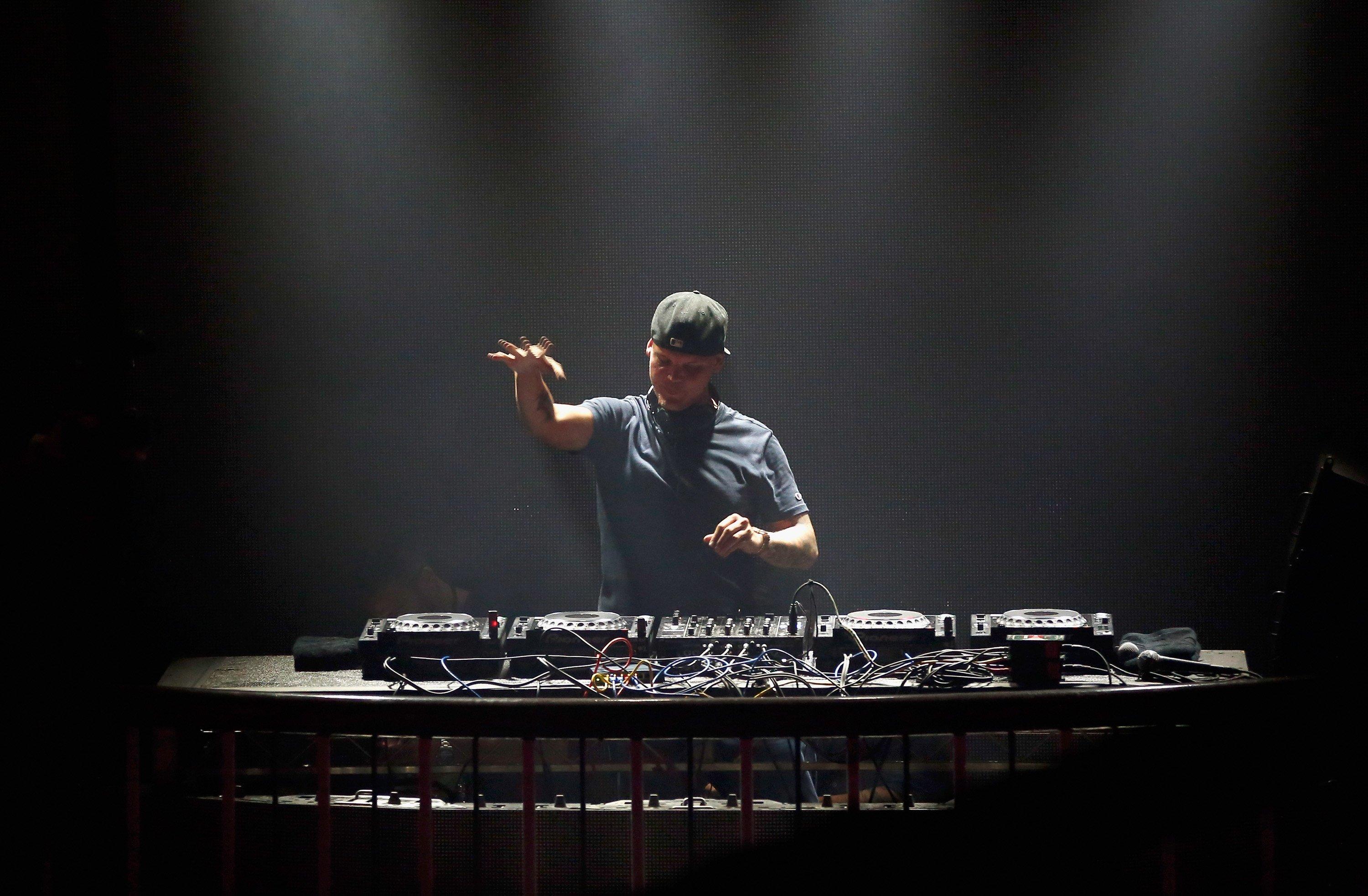
Avicii
news
Adam Lambert, Rita Ora, Kygo, David Guetta & More To Play Avicii Tribute Concert
The newly announced show will support mental health research via the Tim Bergling Foundation and feature DJ sets and live performances of the late DJ/producer's biggest songs
The Tim Bergling Foundation recently revealed details for the Avicii Tribute Concert, to honor the late, beloved DJ/producer in his hometown of Stockholm on Dec. 5, at Friends Arena.
Fellow EDM DJs Kygo, David Guetta, Laidback Luke, Nicky Romero, Dimitri Vegas & Like Mike will offer DJ sets, while over a dozen more artists will perform live versions of Avicii's music. Past collaborators including Adam Lambert (2013's "Lay Me Down) Aloe Blacc (2013's "Wake Me Up" and 2019's "SOS") Rita Ora (2017's "Lonely Together), Joe Janiak (2019's "Bad Reputation" and "Never Leave Me") and Vargas & Lagola (2019's "Piece of Mind," "Tough Love" and "Excuse Me Mr Sir," as well as co-writes on earlier hits, including 2013's "Hey Brother") are slated to bring his songs to life with a 30-piece live band.
<iframe width="620" height="349" src="https://www.youtube.com/embed/fqzhtvLWefA" frameborder="0" allow="accelerometer; autoplay; encrypted-media; gyroscope; picture-in-picture" allowfullscreen></iframe>
All proceeds from the show will benefit mental health awareness via the Tim Bergling Foundation, which the artist's parents set up in his honor earlier this year to "focus on supporting people and organizations working in the field of mental illness and suicide prevention," following his suicide last April.
The concert will mark the first time many of his songs, namely those from his 2019 posthumous album TIM, are performed live, as well as the first time so many of his collaborators gather together to showcase his music that moved so many. The proceeds from TIM were also earmarked for the foundation, which also supports non-profit organizations with causes close to Avicii's heart, including climate change, endangered species preservation and ending global hunger.
Related: Avicii Remembered In Stockholm, At Coachella, And By Fellow Artists
"Tim had plans for his music to be performed together with a large live band, and now we are realizing his dream and giving fans a chance to experience his music in this unique way," Klas Bergling, Avicii's father, said in a statement.
"We are grateful that his friends, producers, artists and colleagues are coming to Stockholm to help. They have all expressed a sincere interest and desire to engage in efforts to stem the tide of mental illness and lend their support to our work with the Tim Bergling Foundation. We are very much looking forward to this evening, which will be a starting point for the foundation's work going forward… We want this concert to help put the topic on the agenda and pay attention to the stigma surrounding mental illness and suicide. Policies and tools are needed to detect the risks and prevent suicide, especially among young people," Bergling added.
Tickets for what is sure to be a powerful concert go on sale Sept. 5 at 10:00 a.m. CET via Ticketmaster. The full lineup can be found here, with more artists to be announced later.
Lizzo, Halsey, Shawn Mendes & More To Talk Mental Health On Upcoming Radio Special
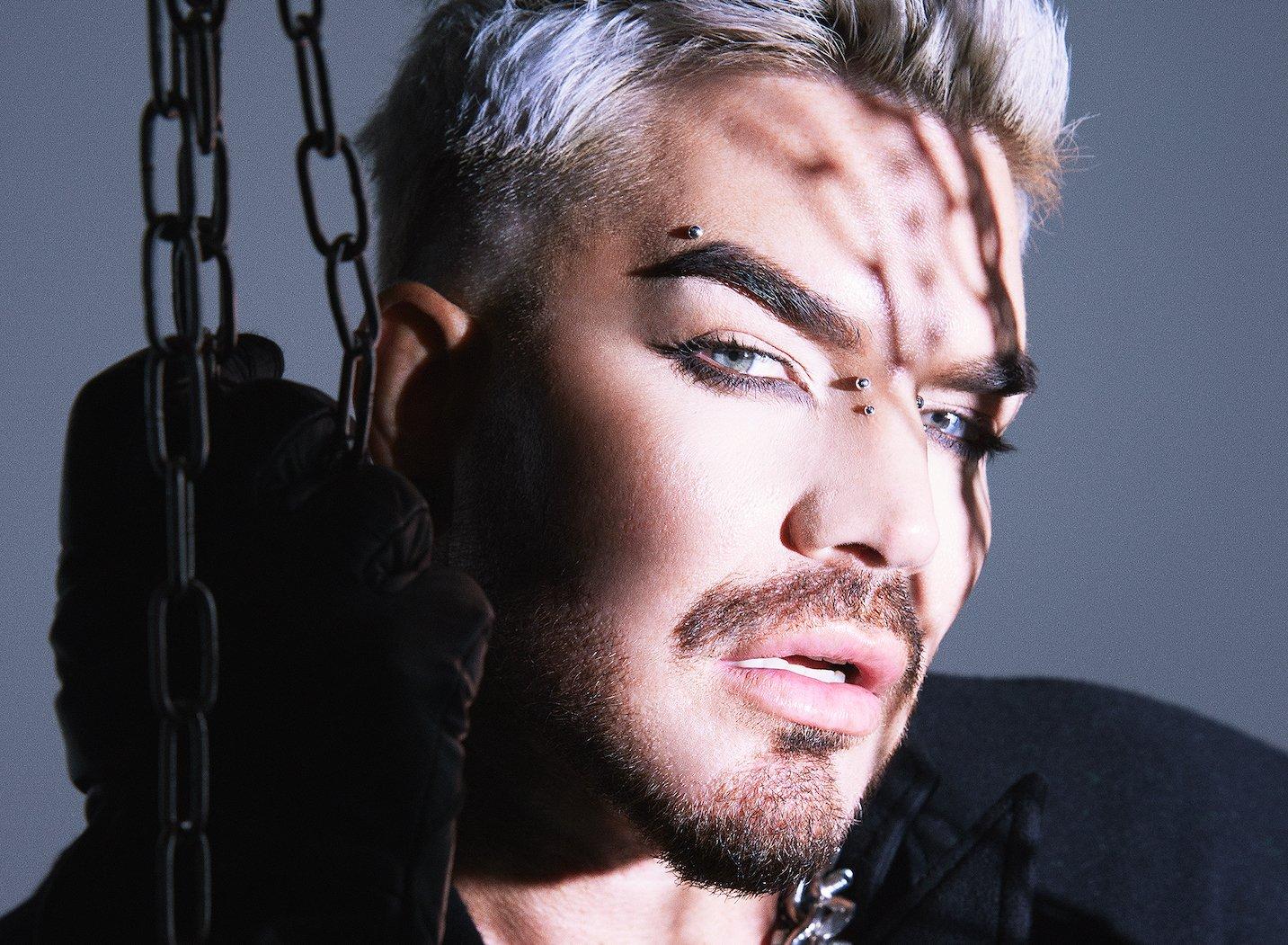
Photo: Brian Ziff
interview
Inside Adam Lambert's 'Afters': How '90s House, Clubbing & Lots Of Sex Inspired His Most "Liberated" Music Yet
With his latest project, Adam Lambert leans into his sexuality and queer nightlife culture like never before. The singer details the uninhibited inspirations behind songs like "WET DREAM" and "LUBE."
Fifteen years into his career, Adam Lambert is primed for the after-party. In fact, the pop star has made an entire EP for the occasion — fittingly titled Afters.
The six-track project, which drops July 19 via More Is More Records, finds the big-voiced singer trading the expansive covers of his last LP, 2023's High Drama, for a no-holds-barred romp that takes listeners from the club to the after-party to the bedroom and beyond.
"It's my love letter to our nightlife culture," Lambert tells GRAMMY.com on a phone call from New York City. And though he admits to recording the bulk of Afters in L.A., the project is imbued with the club kid spirit of New York's queer community — from the primal sexuality dripping off dual lead singles "LUBE" and "WET DREAM" to the strutting, ballroom-ready kiss-off (and nearly NSFW title) of follow-up track "CVNTY."
Ahead of the EP's release, the queer GRAMMY nominee (and frequent Queen collaborator) celebrated his new musical chapter with a special party at The Standard High Line's nightclub Le Bain. Organized by legendary NYC nightlife impresario Susanne Bartsch as part of her famous On Top! event series, the soiree felt like a full-circle moment for Lambert as he watched drag artists like God Complex and ShowPonii slay the house down boots to his new music.
"I've always really been drawn to that kind of world," Lambert says of the thriving LGBTQIA+ party scene. "I think even way back before '[American] Idol,' I remember being in L.A., when I was in my early twenties and trying to find the parties. They were pretty underground at the time, where people would dress up and wear crazy makeup. And of course, I was there in my platform boots, stompin' in. So I've always sort of sought out that community. I love it."
Below, Lambert takes GRAMMY.com through the colorful and unapologetically queer inspirations that led to Afters, from the '90s house sounds of Crystal Waters to finding freedom in radical creative expression — and, of course, plenty of sex.
Feeling Free — And Sexy
I've always loved electronic dance music, I've always loved house. And it's interesting because, for a long time, it was considered sort of "niche" for a gay person to make dance music. And now it just feels like it makes sense. [Laughs.] It's so obvious, you know?
I was working so hard for so long and on tour for so long, and I did a lot of tours with Queen and on my own stuff. I was so focused on my career for so many years, and then as the pandemic kind of faded and we were getting into that next chapter, I made some time for a social life. Which was much needed. That's what kind of inspired me to want to make this music.
I just wanted to make something that felt like my actual social life — that felt like my life. I'm in a relationship, we've made lots of friends in L.A., we have lots of after-parties. We socialize, we go out, we go to clubs, we go to bars. I wanted to make music for that.
My private life is...exciting is how I would probably put it, and passionate. So it's definitely fueled from that. The music is written in first person, but it's also sort of meant to inspire the listener to want to feel that type of freedom as well. You listen to something about sex and hopefully it makes you go, "Yeah! I feel sexy!"
Overcoming Post-'American Idol' PTSD
When I first came out the gate after Idol, I did a big old performance [at the 2009 American Music Awards]. I got in trouble for kissing the guy and having sexy dance moves and stuff, and that gave me a little dash of almost a PTSD of, like, "Oh, OK, there's a line that I can't cross. And if I do, I could risk losing everything." And that fear drove me down a certain path where I felt like I had to hold back a certain amount.
That was very much a reflection of where we were at as a society at the time, and what the mainstream was able to digest. The music industry was a different game back then. There were a lot more gatekeepers, a lot more obstacles that I encountered. Now, the industry has shifted so much, just in terms of how people get music, how you can reach your listener, how you can make music, what kind of label situation you have set up. There's a lot less filtering going on. That's what also inspired me to want to make something that was more liberated.
My perspective has shifted a lot. That fear early on came from a place of, "I don't want to lose this opportunity." There was a little dash of imposter syndrome in there. You know, coming off of "Idol," feeling like, "Oh my god, how did I get here?" It happened so fast. And I think just having stayed in the game over the last 14 years has given me a sense of confidence. It's given me a sense of belonging.
I've found more of who exactly I am over that time. Working with Queen has been a real boost in confidence as well, and has allowed me to sort of feel like I've earned something.
Setting The Mood
I love music that puts you in a mood, in a headspace. And that's what I wanted Afters to be. That's why I called it Afters. It was, yes, you could totally listen to these at a club, but it's also, like, lyrically, when you go to a club and then you go to an afterparty, the rules are out the window. You can do whatever you want, you know? And people feel that freedom.
There's something to be said about growing up a bit and maturing as a performer. You feel less of a need to prove something [vocally]. I think I'm finding less of an impulse to be, like, "Look what I can do!" and more, "Look what I can make you feel." The "less is more" thing does start to become more obvious.
As I've gotten a little older, too, my voice has shifted a bit. And I have, like, lower parts of my voice that I haven't really dug into before that I definitely did on this project. Which is kind of a fun experiment. I just wanted to do something that was more vibey.
'90s House & '20s Hyperpop
I like going into a project with, like, a reference and a direction. It gives you sort of a roadmap…I have a whole playlist of newer stuff that I kept adding. A lot of it's somewhat obscure, but then there's artists out there that I think are really cool, like Slayyyter [or] COBRAH. A lot of the DJs that I really like — Chris Lake is amazing. Even stuff like Disclosure… I really love them. I just wanted to make music that made me move.
I found myself gravitating towards a similar sound over and over again — sort of a dirty house, kind of sexy tech-house sound. Certain textures and sonics that I started noticing as a pattern of the stuff that I liked.
I love a good, soulful house vocal, always…Like Crystal Waters or any of those. I love that, like, '90s house vibe. And obviously "DEEP HOUSE" [on Afters] has a little bit of that. So does "WET DREAM," where you get into that soulful pocket. It's so fun to sing from that place.
Queer Voices In The Studio
It was really important for me to make sure there were queer people in the room when I was writing these songs. Back when I was first starting, the major label writing setups that I was put into, there weren't many queer people. And that's changed so much — there's more and more queer people in the music space. Definitely top-line songwriters, and then even more and more, I'm finding producers that identify as queer, and that's really exciting. 'Cause it makes everybody less afraid and just willing to sort of go for it.
"WET DREAM," I did with Sarah Hudson and JHART and Ferras, who I've known for ages. Vincint and Parson James worked with me on "LUBE." Just people that I really admire. Vincint did some background vocals on "LUBE," actually, which is cute. Vincint and I did a collab on his project recently as well, so that was cool that we got to each kind of add to each other's project.
A lot of the songwriters are friends of mine who I've known for a long time. I was like, "Do you want to do a song?" Which makes the writing process so much fun.
Queer Rebellion & Sexual Healing
I think, right now, people want to find freedom. I think people want to find an escape. There is a lot of sociopolitical energy right now that's kind of dark and negative, that's coming at us from the right wing, super-conservative side of the world. Some of that can make us feel dark as well, and kind of discouraged.
But I also think there's a lot of us, including myself, that feel like that lights a bit of a rebellious flame in us, and makes us want to shine brighter and be bolder and be wilder and crazier than we are. And [I] see that out and about: people are more and more expressive, emotionally, with their identity [and] how they want to explore [it].
There are members of our community that want to explore their gender identity; there are members of our community that want to explore their feminine side or their masculine side. There's, I think, more acceptance in that exploration and that expression right now than there's ever been. It's f—ing great. It's always been there in the [LGBTQIA+] community, but you're just seeing it on display a little bit more. People are more comfortable going there and exploring it, and I love that.
There's less and less shame around sex than there's ever been. We're more mainstream than we've ever been — there's more with social media and [pauses] other types of media on the internet. And that's really exciting. 'Cause sex is f—ing great. And healing, and wonderful, and exciting. It's our human right to explore our sexuality, and I see more people feeling freer in that.
Finishing With A Climax
One of the Afters songs, "FACE," was actually created a while ago. I wrote that with Pete Nappi, like…four-ish years ago? During the pandemic, I think. But it sounded very different. And once I started getting more house tunes together, I kinda was like, "OK, can we take this idea and evolve it into a higher BPM and a dancier kind of direction?"
We sped it up, we added a bigger beat to it, more of a four-on-the-floor feel to make it feel "club." But it's definitely the last track on the EP for a reason. 'Cause it slows down compared to the other songs a bit. If the rest of the EP is foreplay, it's sort of like the home run. [Laughs.] It's like once you get that person that you've been into all night into the bed, what happens?
Latest News & Exclusive Videos

2024 Paris Olympics Opening Ceremony: Watch Celine Dion, Lady Gaga, Gojira & More Perform

Ice Spice Is The Drill Queen On 'Y2K!': 5 Takeaways From Her Debut Album

New Music Friday: Listen To New Songs From Halsey, MGK And Jelly Roll, XG & More

Watch Young MC Win Best Rap Performance In 1990

The Red Clay Strays Offer A New Kind Of Religion With 'Made By These Moments'
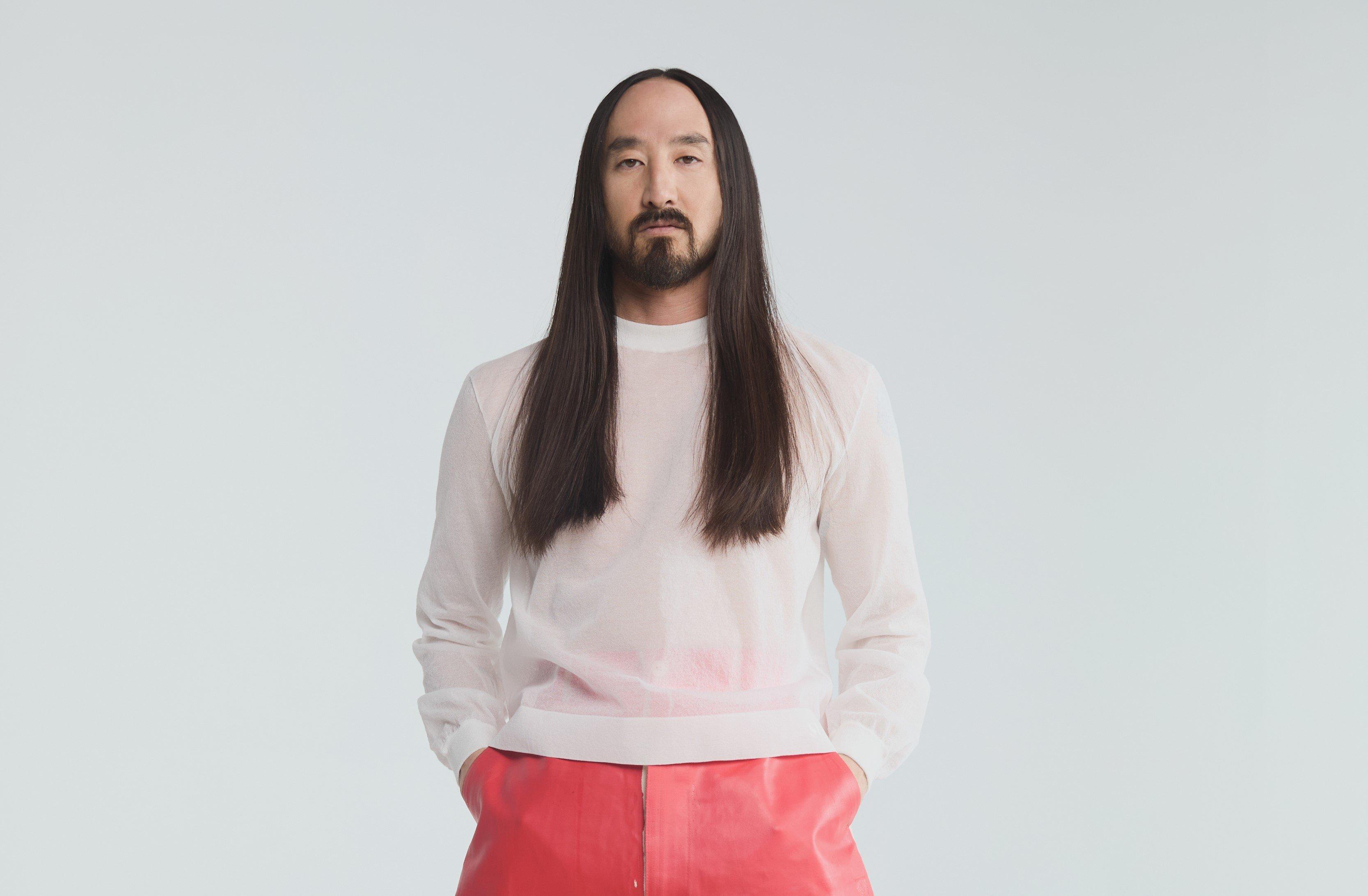
Photo: Jana Schuessler
interview
On 'Paragon,' Steve Aoki Keeps Pushing: "This Is By Far The Most Innovative Dance Album I've Ever Done"
From techno to electro, 'Paragon' runs the gamut of dance sounds.Out June 28, the LP is decisively for the dance floor and reflects "a newer sound of Steve Aoki."
The title of his ninth studio album is an apt description of Steve Aoki himself.
The cake-throwing DJ/producer — best known commercially for his 2012 remix of Kid Cudi, MGMT, and Ratatat’s "Pursuit Of Happiness" — can very well be called a paragon of longevity in dance and electronic music. And like his stature as one of the world’s highest-paid DJs (Forbes regularly cites him on its annual list), this status is hard-won.
"[The dance music industry] is…not forgiving," he tells GRAMMY.com on a Zoom call from his home in Las Vegas. He appears in quintessential Aoki fashion: shirtless, his long, dark hair cascading down his shoulders. "Yes, I have a safety level where I can continue to play shows based on old tracks, but that doesn't last very long. You have to constantly stay ahead."
Akin to HiRO — the protagonist of the HiROQUEST graphic novel series that he created to pair with his last two studio albums, HiROQUEST: Genesis and HiROQUEST 2: Double Helix — Aoki is on a quest of his own. HiRO (a genetically augmented meta-human) is tasked with traveling into the multiverse 400 years into the future to save Earth from an unavoidable disaster. Aoki’s charge — continuous innovation of his craft to sustain his longevity in dance music’s ever-saturated and rapidly-moving market — is no less dire nor significant to the Dim Mak Records founder.
"I've always had this starvation complex where I have to keep doing my s—, or else I'm going to die," he muses casually, phone in hand as he paces around his house, as he’s done since he joined our call. Judging by the deadpan manner in which he delivers this line and the laugh that caps it off, this is not a revelation for Aoki. As the Greek maxim goes, "know thyself." Assuredly, he does, and well enough to know he has to keep doing his thing, hence Paragon.
The 18-track project, out June 28, harkens back to Aoki’s dance floor roots following 2023’s Latin-influenced HiROQUEST 2: Double Helix and 2022’s alternative- and punk-guided HiROQUEST. It teems with high-profile crossover collaborations, like "Heavenly Hell" (Ne-Yo), "Electrowavebaby 2.0" (Kid Cudi), and "Get Lower" (Lil Jon). Most importantly, though, it reflects "a newer sound of Steve Aoki" — a compelling and contemporary means of extending his "safety level" in the dance space.
Ahead of Paragon’s release via his own imprint and an international tour, Steve Aoki spoke with GRAMMY.com about the album’s relationality to his artistic identity and HiROQUEST and why, even after nine albums, he’s still "very excited and very hungry to get back in the studio and continue to write music that matters."
This interview has been condensed and edited for clarity.
Why was now the right time for you to go back to your true dance roots?
An album is always about where I am at that moment. I look at each album in a way where I don't want to think too deeply about it. I want it to be more of a timestamp that, in 10 years’ time, reflects that moment in time for me.
This time, a lot of the collaborations I was doing just fluidly became more of the same synergy. It’s a flow, and Paragon is also directly reflective of the kind of music I'm playing at my shows.
Dance music is certainly on a rise, especially the newer sounds of dance music. Sonically, the climate's changing a lot, which challenges me as a producer who was more dominant in the 2010s. I was putting out a lot of music then, and those songs were more prolific in the electronic dance music community.
Now, I'm challenged to stay ahead of my own production. The DNA of your sound stays with you, but you’ve got to always innovate, and this is by far the most innovative dance album I've ever done.
What, in your opinion, makes 'Paragon' so innovative?
When I go back into Paragon and I listen to each song, it's a newer sound of Steve Aoki; it's very dynamic and diverse. There’s house records, there's techno records, there's different beats-per-minute ranges — it's not just hard-hitting festival records.
I think it's forward-thinking for me as a producer, and I'm already working on the "Part B." I distinctively made it shorter than my previous three albums, which were over 20 songs each. This is more of a traditional album length because I look at it as a two-part story musically.
I have a bigger story that I've been attaching to my albums, like HiROQUEST and HiROQUEST 2. I wrote a book that joins those two albums into a full-length science fiction fantasy anime storyline with art and cards and collectability factor, all that fun stuff outside of music.
Paragon is going to be an Easter egg or precursor to what's to come — the continuation of HiROQUEST. I just wanted to not use the name HiROQUEST because I wanted to do something different.
How does the album’s title fit into this larger narrative?
The Paragon Aura is a huge theme of Book 2 of HiROQUEST — it's what brings HiRO back from the "lost world" where he's been stuck. He essentially dies at the end of Book 1 and gets stuck in this lost world. This aura brings him back.
The HiROQUEST is a quest of 10 rings and HiRO is trying to obtain all 10, so he gets this power that’s going to be discussed in Book 2. In order to forge the 10 rings to this omnipotent god ring, he has to use the Paragon Aura. The Paragon Aura is an extremely powerful tool and it's a big theme of the second book.
You’re certainly a paragon of longevity in the dance space, which is rare. How have you maintained such an enduring and continuously expanding presence?
The hunger needs to be there. It doesn't matter how successful you might be to the world. Yes, I have a safety level where I can continue to play shows based on old tracks, but that doesn't last very long. You have to constantly stay ahead.
I think dance music is a bit different from rock or other genres where you can tour off your old catalog. Blink-182 never has to make another new song if they don't want to; they're going to sell out stadiums based on their catalog. Radiohead, Coldplay, they never have to make another new song — they're going to sell out.
There's certain artists in the dance world that are veterans in the space. They’re household names. Like Tiësto or David Guetta…they don't have to release any more music, but they do. When they drop new music, it's still consistently part of culture, which is so exciting. I think that's exciting about the dance world; we still have a strong fingerprint.
Do you count yourself among the veteran dance acts who don’t have to release more music if they don’t want to?
There are definitely people who might think I'm in this category, but I don't personally think about myself like that. Not doing so keeps me fighting for it. I'm still very excited and very hungry to get back in the studio and continue to write music that matters.
The baseline has to be that you're giving all of yourself to this. I still remember touring in a band with four sweaty dudes, showering once a week, and staying at people's houses. Not once in those 14 tours did we ever stay in a hotel. All the money went to gas and feeding ourselves.
We’d be broke by the end of the tour, and I’d be ready for the next one. I still remember the feeling of okay, we’re broke, we’re stinky, and we’re back in our town. Now we gotta write more music to get back on the road again, and I loved it. I did like 14 full tours by the time I was 21. It's a lot more luxurious these days but doing what you love has to be the foundation or else you can't survive the hard.
I've been doing my record label, Dim Mak, for almost 30 years now. The people who have worked for Dim Mak…it's a lifestyle. Yes, they're working to get a paycheck, but they're working first and foremost because they believe in the culture. You have to be down with the culture first and the paycheck second.
What can fellow DJ/producers take from the example you’ve set?
I think the most important thing is to never stop making music and leveling up your shows because those are the two most important things as an artist in any space. The live experience is really important. Your music is number one, though, because if your music's not good, no one's even going to go to your live show. You need to build your sound to a point where people know your music as you, and then you better show up and make your show really good. And not even just good — you’ve got to make it your own show.
A Steve Aoki show is a unique show, and in some cases, it's outperforming my music. People will talk more about my cakes than my new album. I'll take it though, because I just want people to have a great experience.
There are a lot of artists who find their sound, develop it, people latch onto them, and then they just fizzle out for whatever reason. When it fizzles out, that's when the real test comes and it’s to go back to it. If you really care about the long game, you’ve got to keep putting more cakes in the oven.
Nine albums is a tall tally, especially for the dance genre, where the album is not the dominant format. Why is it important to you to continue making albums despite this dynamic?
I've always been an album guy because I was a band guy. When you're in a band, the most important thing is to make an album, not a song. You have to make a collection of music that defines you.
When I was in bands, I listened to albums, and I’d listen to every single song. I know people don't do that anymore, but I still like to follow that, I can't help it. I collect vinyl; I do certain things in the old-school sense that you can't kick out of me.
Read more: 8 Times Dance Stars Channeled Their Inner Punk Kid, From Deadmau5 & Gerard Way To Rezz & Silverstein
I know people aren't listening to the full album. I know they're listening to the song that's probably the main song of the whole album. And even if one one-hundredth of my fans listen to the full album, I don't actually care. I'm still going to make the album. It goes back to the most important thing: I'm doing it for myself first.
I love telling a story. All the attention to detail and my intention to create this moment in time means so much to me. I know one one-hundredth of the people are going to be there for it, and I'm totally fine with that. I've grown a community of fans because I care so much about the detail; I go so deep into the story. I do it for them too. And the people who are in and out and come just for the quick hit, that's fine. They're absolutely welcome and invited to be part of it.
That one one-hundredth appreciates the concept-driven approach to album-making, especially because this genre isn’t exactly known for that compared to other genres.
Yeah, and I think a lot of stuff that I'm doing, especially with HiROQUEST, has not been done before, like bringing in anime culture, card culture, comic books, and manga. No one's doing that in [dance music]. The Weeknd did a comic book and so did Kid Cudi. I'm following the same practice of combining these worlds.
And I went deep in HiROQUEST: Book 1. It's 50,000 words. I spent like 16 months writing this book; it’s 250 pages. That’s a big ordeal, but what's great is we’ve already sold out two printings. We're already in our third printing now, which is incredible for a story that had never been heard before.
I love my fans for that. It allows me to have the courage to keep going. To step out like this is a lot of work and a lot of time, and you don't want to fall on deaf eyes and ears. I'm already writing Book 2.
Tove Lo & SG Lewis Crafted Sweaty New EP 'HEAT' In Celebration Of Their Queer Fans
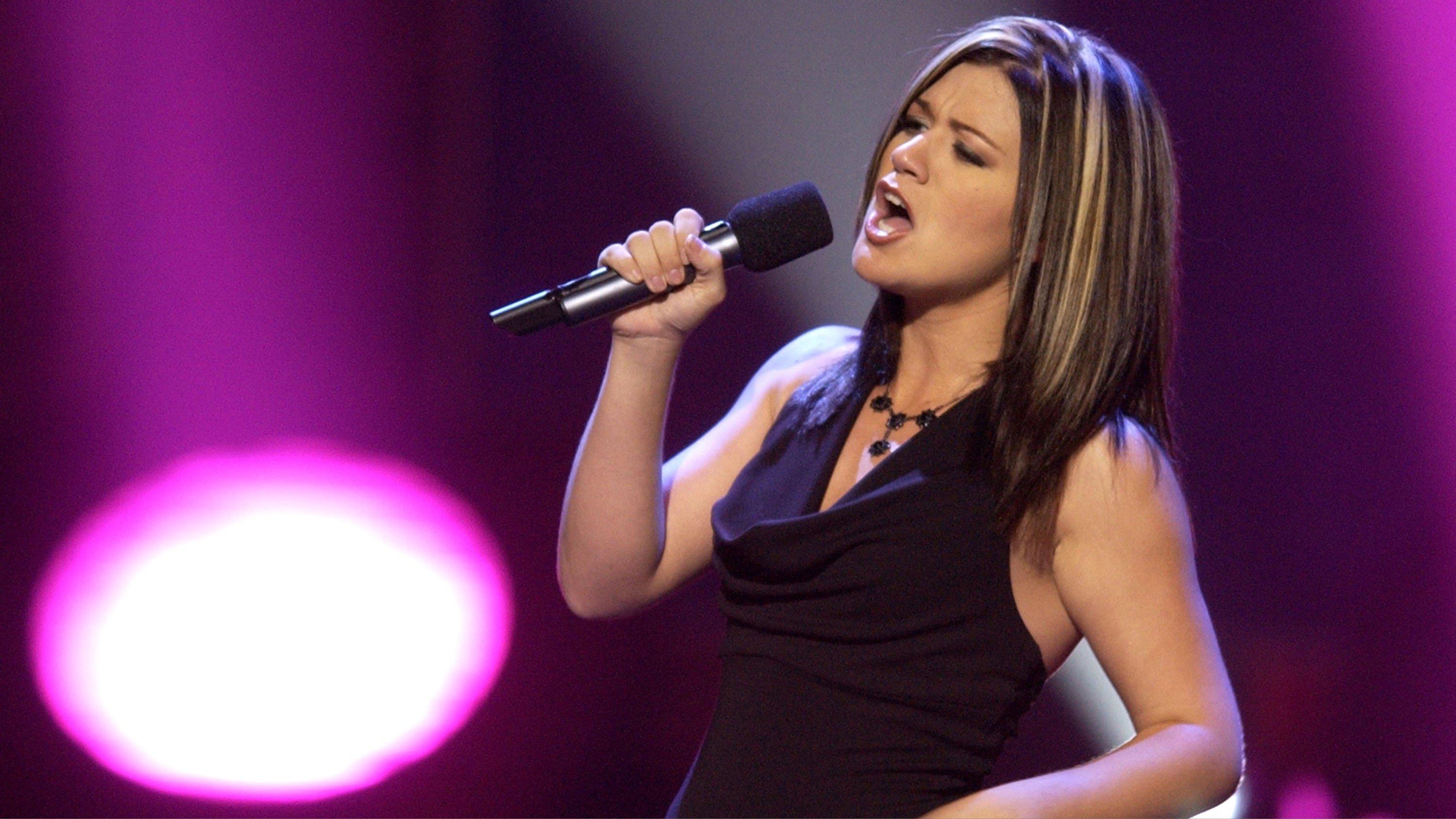
Photo: Steve Granitz / GettyImages
news
On This Day In Music: "American Idol" Premieres On Fox Network
For decades, "American Idol" has been instrumental in discovering some of music’s biggest names and pioneering the reality TV contest genre. As the show enters its 22nd run, here’s a look at how it has become an iconic household staple across the country.
For countless Americans, "American Idol" is intertwined with core memories as a show that had families eagerly glued to their TVs twice a week. It brought generations together, creating moments of both suspense and excitement that are still remembered today, as the show continues to run in its 22nd season.
Created by visionary entrepreneur Simon Fuller, "American Idol" premiered on June 11, 2002, as a fresh spin-off of the British program "Pop Idol." It revolutionized how Americans engaged with reality TV through its interactive, viewer-driven voting system, which encouraged audience participation in the success of their favorite contestants. The show also offered viewers a glimpse into contestants' candid backstories and personal journeys, anchoring emotional investment and skyrocketing the show's popularity.
The show's debut season featured a dynamic trio of judges: singer Paula Abdul, TV personality Simon Cowell, and producer Randy Jackson. Their contrasting personalities brewed a chemistry as captivating as the hopeful performances. Abdul’s warmth, Cowell's blunt wit, and Jackson’s humor added extra layers of entertainment, making the twice a week broadcasts a must-watch.
The first season of "American Idol" also unforgettably introduced the country to Kelly Clarkson. Since her debut — with a heart-tugging backstory about being the average girl-next-door with big dreams — Clarkson has gone on to tour the world, host her own TV talk show, and secured her spot as one of music’s most beloved talents.
"I had dreams since I was a little girl that I wanted to be on the GRAMMYs, or some award show and sing on there," Clarkson mentioned in her pre-audition interview. Flash forward 22 years, the pop singer has accumulated 17 GRAMMY nominations and three wins, propelled by a powerful vocal gift.
Other artists who launched their careers from the show's platform include Jordin Sparks, Carrie Underwood, Adam Lambert, and Jennifer Hudson, who each serve as testament to the show’s impact in music.
"American Idol" has not only opened our eyes to some of our favorite musicians, but it also has given us some of our favorite pop culture moments.
A video that frequently resurfaces on social media captures a memorable moment between Katy Perry and contestant Noah Davis, where they bond over the slang term 'wig'.
"No, it’s not your language. It’s just for us," Perry joked to her fellow judges, Lionel Richie and Luke Bryan, when they questioned the term’s meaning.
After two decades on air, "American Idol" has etched a lasting legacy in pop culture. It has paved the way for other reality TV music shows and created lasting memories for music fans along the way.
“The show transcends age, gender, ethnicity, everything,” Underwood told Billboard in 2005.
Explore More History-Making Moments In Music
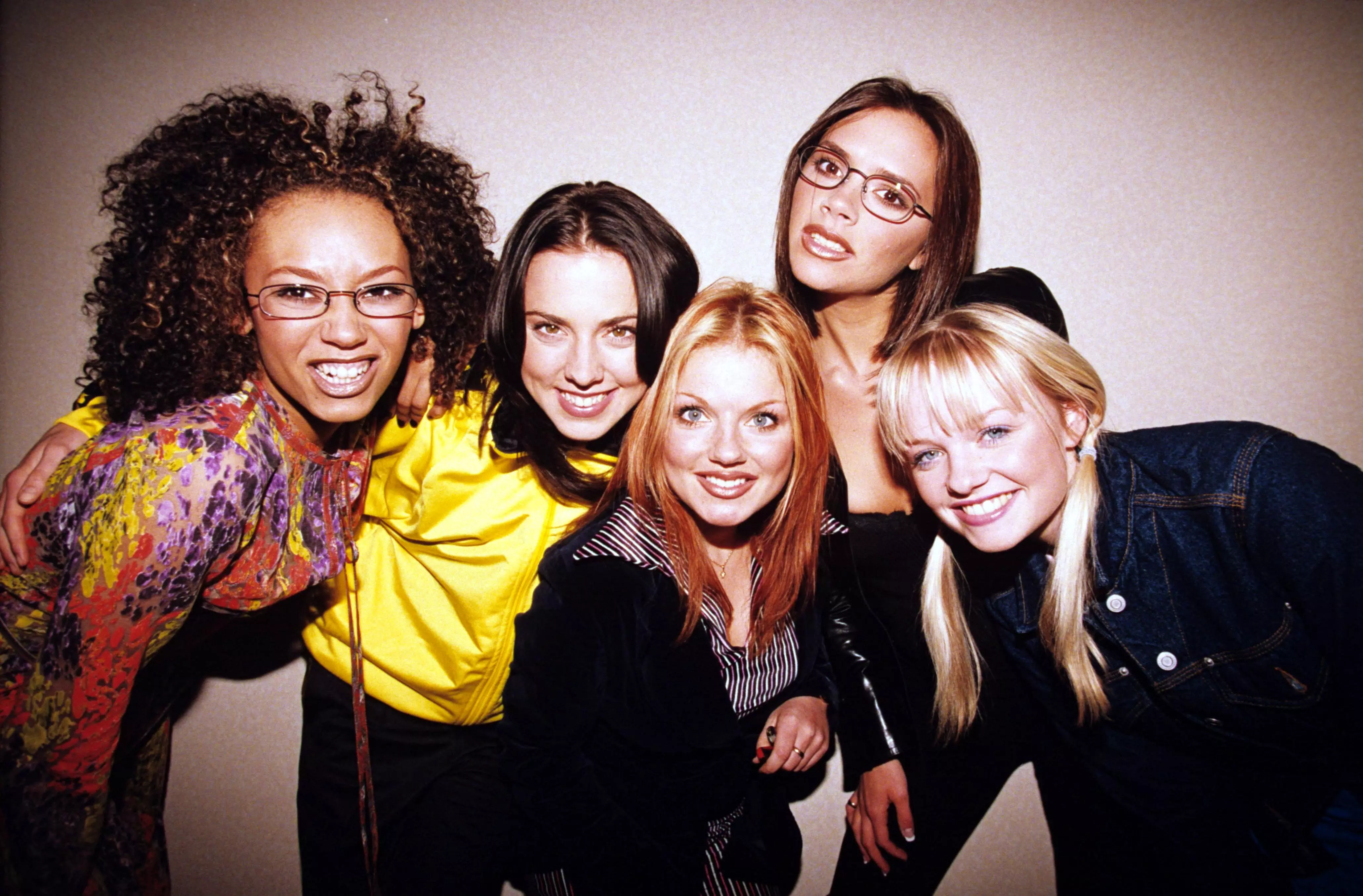
On This Day In Music: Spice Girls Release "Wannabe," Their Iconic Debut Single
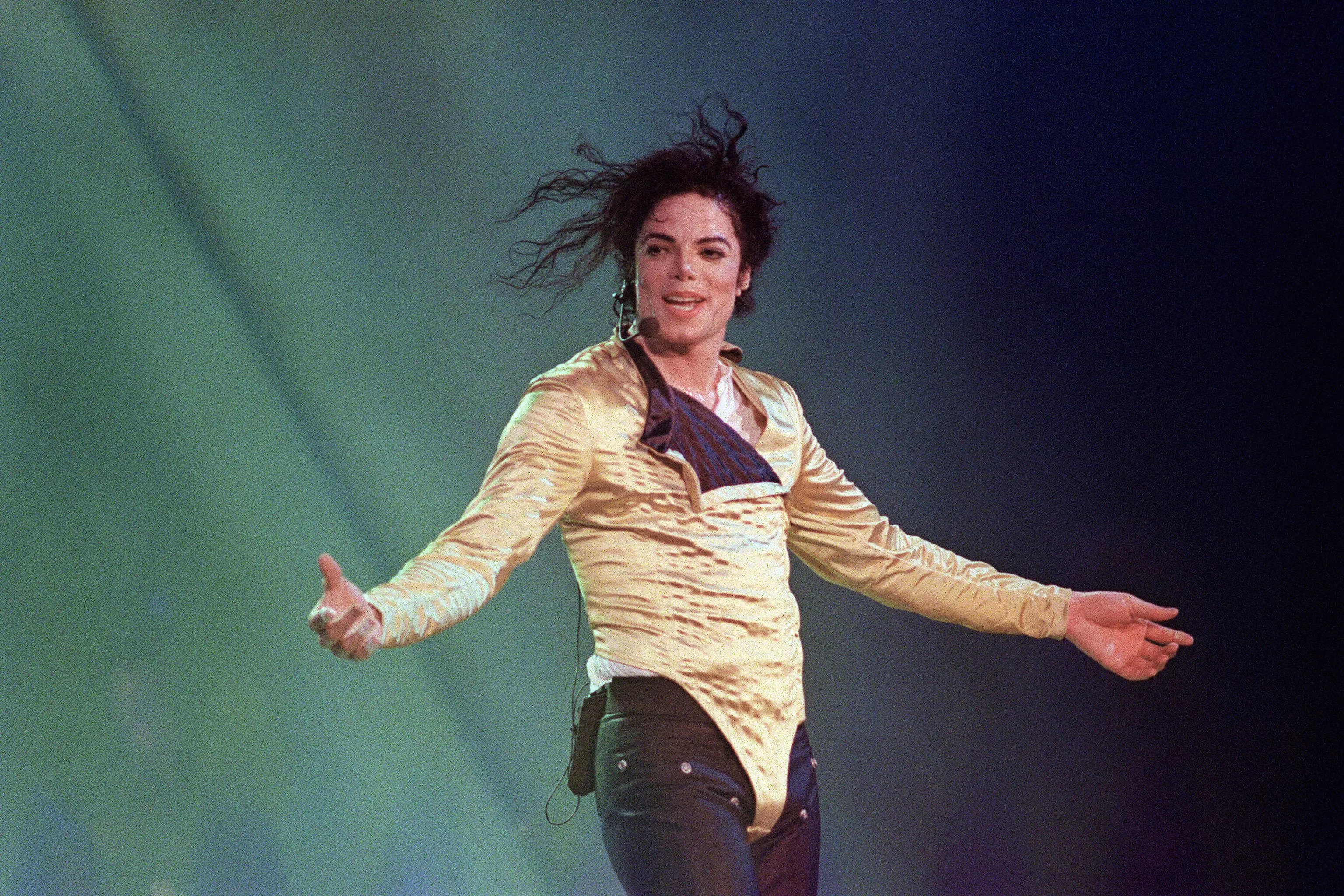
On This Day In Music: Michael Jackson Passes Away In Los Angeles At Age 50
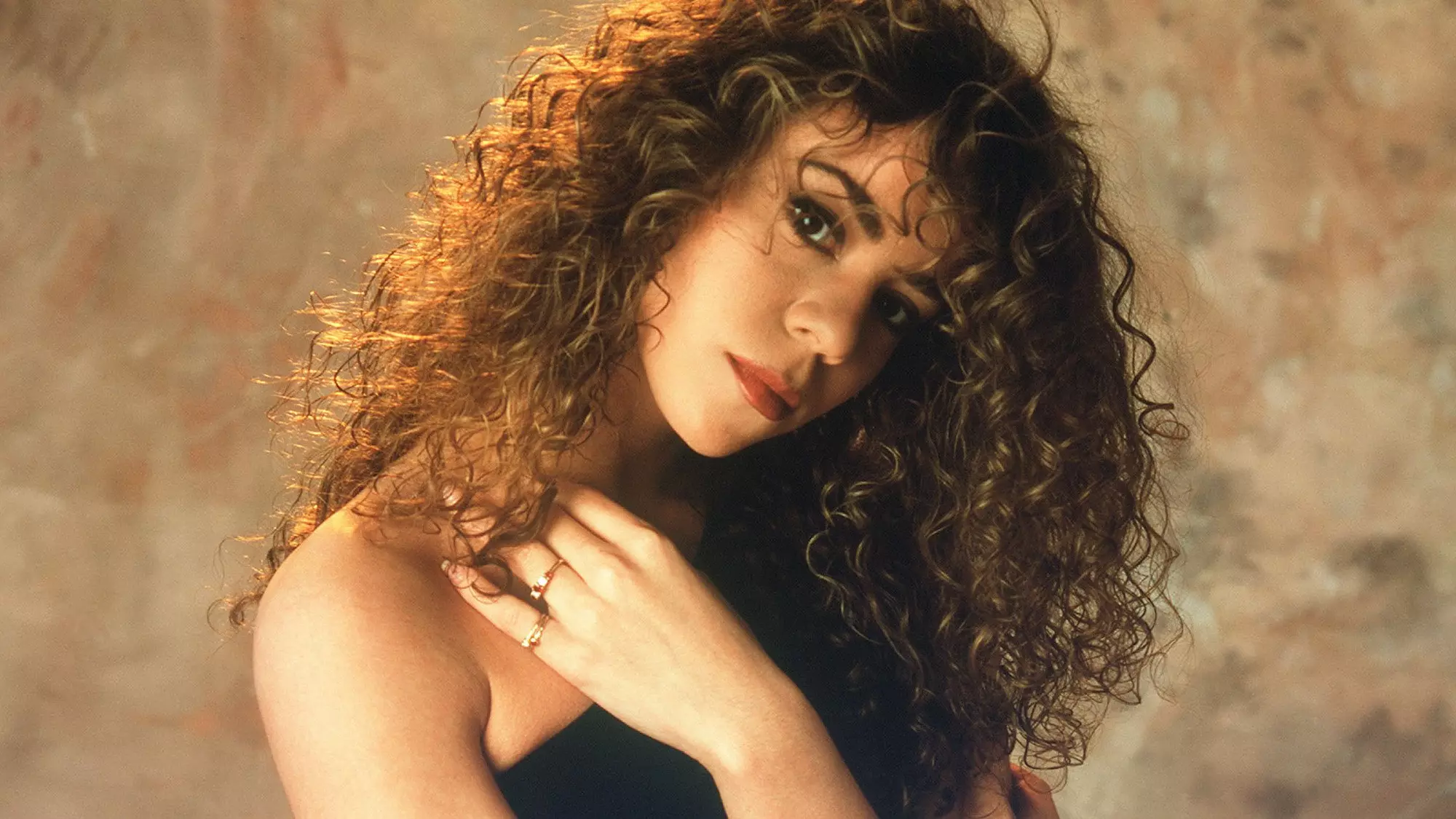
On This Day In Music: Mariah Carey Releases Her Self-Titled Debut Album
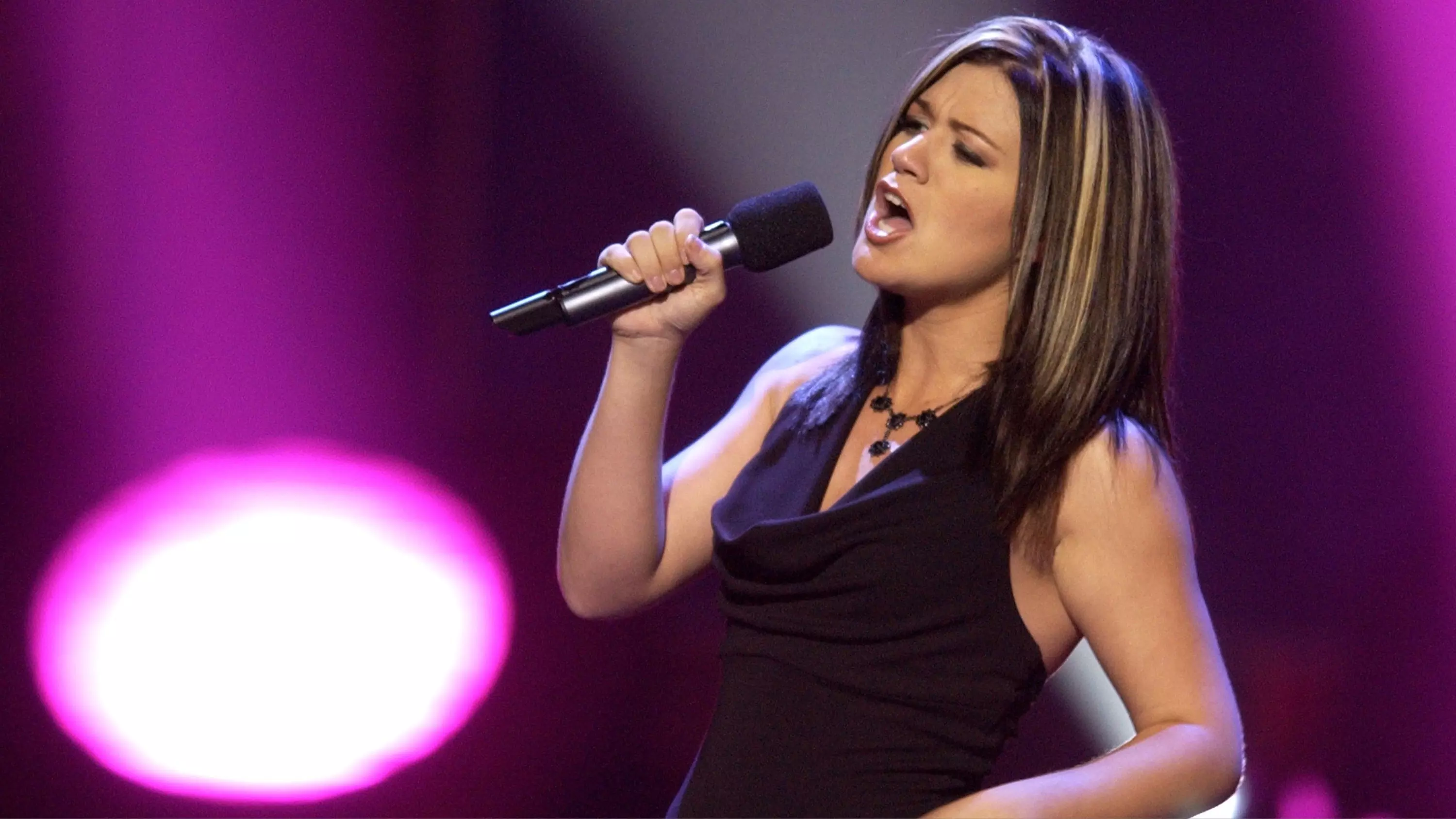
On This Day In Music: "American Idol" Premieres On Fox Network
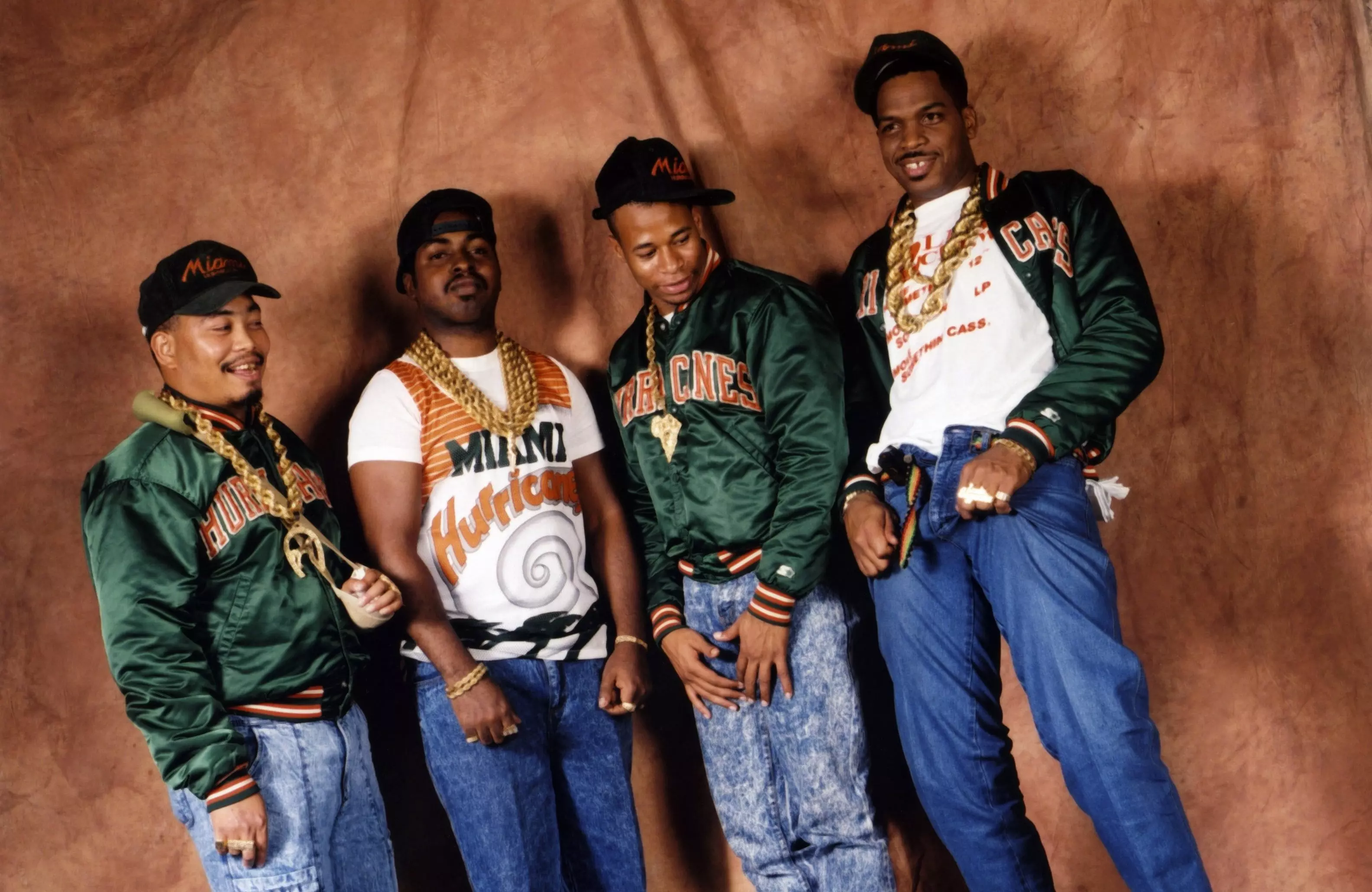
On This Day In Music: 2 Live Crew's 'As Nasty As They Wanna Be' Becomes First Album Declared Legally Obscene, Anticipates First Amendment Cases
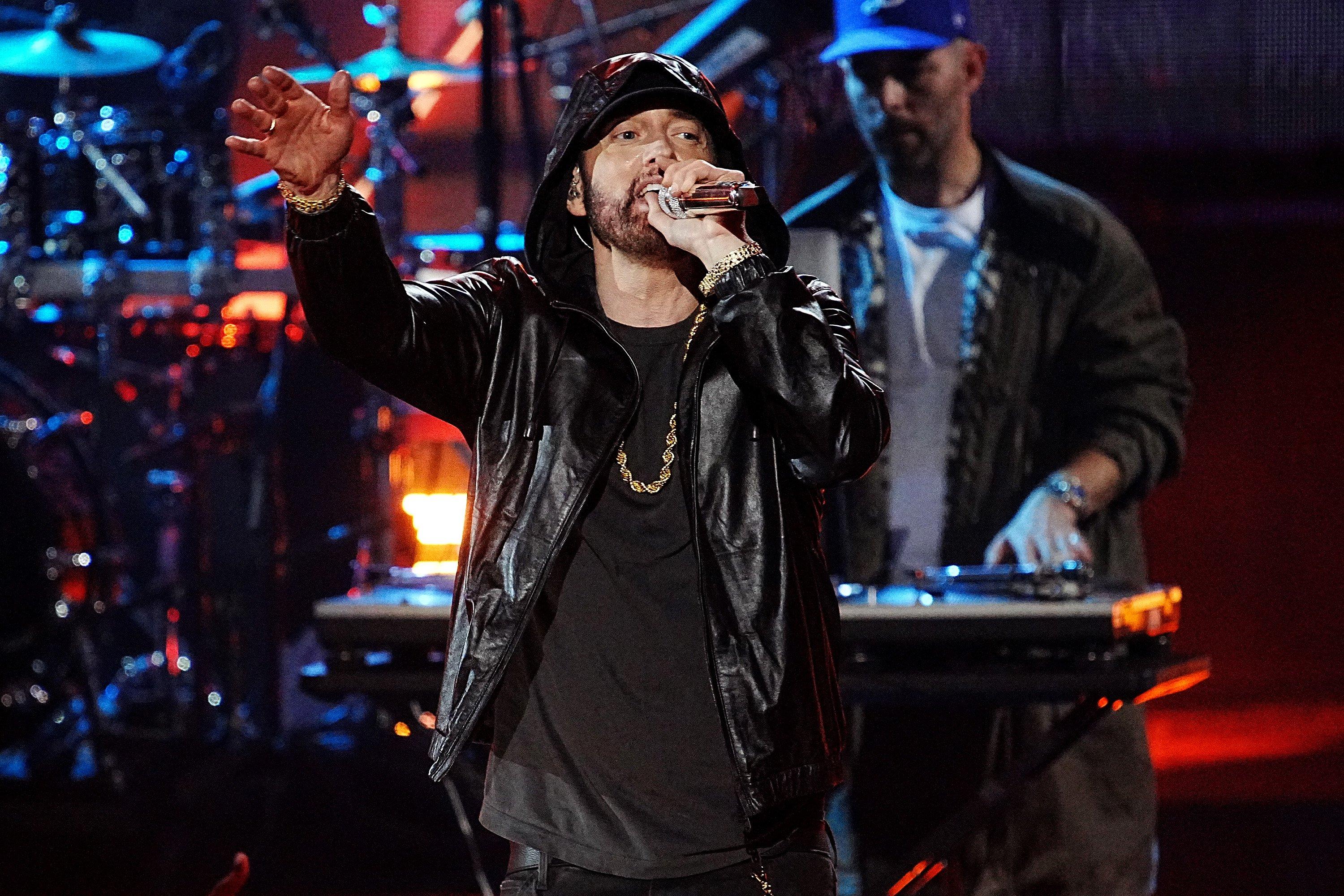
Photo: Jeff Kravitz/FilmMagic via Getty Images
list
New Music Friday: Listen To New Albums & Songs From Eminem, Maya Hawke, ATEEZ & More
Dive into the weekend with music that’ll make you dance, brood and think — by Jessie Reyez, Ayra Starr, Adam Lambert, and many more.
After the cookouts and kickbacks of Memorial Day weekend, getting through the workweek is never easy. But you made it through — and now it's time for another weekend of however you decompress. As always, killer jams and musical food for thought have arrived down the pipeline.
As you freshen up your late-spring playlist, don't miss these offerings by artists across generations, moods, genres, and vibes — from K-pop to classic country and beyond.
Eminem — "Houdini"
It looks like Dua Lipa isn't the only artist to name-drop Erik Weisz this year. In a recent Instagram video with magician David Blaine, Eminem hinted at a major career move, quipping, "For my last trick, I'm going to make my career disappear," as Blaine casually noshed on a broken wineglass.
With Em's next album titled The Death of Slim Shady, fans were left in a frenzy — was he putting the mic down for good? If "Houdini" is in fact part of Eminem's final act, it seems he'll be paying homage to his career along the way: the song includes snippets of Em classics "Without Me," "The Real Slim Shady," "Just Lose It" and "My Name Is."
The superhero comic-themed video also calls back to some of the rapper's iconic moments, including the "Without Me" visual and his 2000 MTV Video Music Awards performance. It also features cameos from the likes of Dr. Dre, Snoop Dogg, 50 Cent, and Pete Davidson — making for a star-studded thrill ride of a beginning to what may be his end.
Read More: Is Eminem's “Stan” Based On A True Story? 10 Facts You Didn't Know About The GRAMMY-Winning Rapper
Maya Hawke — 'Chaos Angel'
"What the Chaos Angel is to me," Maya Hawke explained in a recent Instagram video, "is an angel that was raised in heaven to believe they're the angel of love, then sent down to do loving duties."
Chaos Angel, the third album by Maya Hawke, out via Mom+Pop Records, is an alt-rock treasure with a psychologically penetrating bent. Smoldering tracks like "Dark" and "Missing Out" plumb themes of betrayal and bedlam masterfully.
Jessie Reyez & Big Sean — "Shut Up"
Before May 31, Jessie Reyez's 2024 releases have come in the form of airy contributions for Bob Marley: One Love and Rebel Moon. And for the first release of her own, she's bringing the heat.
Teaming up with fellow rapper Big Sean for "Shut Up," Reyez delivers some fiery lines on the thumping track: "They b—es plastic, that b— is a catfish, oh-so dramatic/ And I'm sittin' pretty with my little-ass t—es winnin' pageants." Big Sean throws down, too: "B—, better read the room like you telepromptin'/ And watch how you speak to a n—a 'cause I'm not them."
Foster the People — "Lost In Space"
Indie dance-pop favorites Foster The People — yes, of the once-inescapable "Pumped Up Kicks" fame — are back with their first new music since 2017's Sacred Hearts Club. The teaser for their future-forward, disco-powered new song, "Lost in Space," brings a psychedelic riot of colors to your eyeballs.
The song is equally as trippy. Over a swirling, disco-tinged techno beat, the group bring their signature echoing vocals to the funky track, which feels like the soundtrack to an '80s adventure flick.
"Lost in Space" is the first taste of Foster The People's forthcoming fourth studio album, Paradise State of Mind, which will arrive Aug. 16. If the lead single is any indication — along with frontman Mark Foster's tease that the album started "as a case study of the late Seventies crossover between disco, funk, gospel, jazz, and all those sounds" — fans are in for quite the psychedelic ride.
Arooj Aftab — 'Night Reign'
Arooj Aftab landed on the scene with the exquisitely blue Vulture Prince, which bridged modern jazz and folk idioms with what she calls "heritage material" from Pakistan and South Asia. The album's pandemic-era success threatened to box her in, though; Aftab is a funny, well-rounded cat who's crazy about pop music, too. Crucially, the guest-stuffed Night Reign shows many more sides of this GRAMMY-winning artist — her sound is still instantly recognizable, but has a more iridescent tint — a well-roundedness. By the strength of songs like "Raat Ki Rani" and "Whiskey," and the patina of guests like Moor Mother and Vijay Iyer, this Reign is for the long haul.
Learn More: Arooj Aftab, Vijay Iyer & Shahzad Ismaily On New Album Love In Exile, Improvisation Versus Co-Construction And The Primacy Of The Pulse
Willie Nelson — 'The Border'
By some counts, Willie Nelson has released more than 150 albums — try and let that soak in. The Red Headed Stranger tends to crank out a Buddy Cannon-produced album or two per year in his autumn years, each with a slight conceptual tilt: bluegrass, family matters, tributes to Harlan Howard or the Great American Songbook. Earthy, muted The Border is another helping of the good stuff — this time homing in on songwriters like Rodney Crowell ("The Border"), Shawn Camp ("Made in Texas") and Mike Reid ("Nobody Knows Me Like You.") Elsewhere, Nelson-Cannon originals like "What If I'm Out of My Mind" and "How Much Does It Cost" fold it all into the 12-time GRAMMY winner's manifold musical universe.
ATEEZ — 'GOLDEN HOUR : Part.1'
South Korean boy band ATEEZ last released new material with late 2023's The World EP.Fin: Will. Now, they're bringing the K-pop fire once again with their 10th mini-album, GOLDEN HOUR Part.1.
Released in a rainbow of physical editions, the release was teased by a short clip for "WORK," where ATEEZ pans for gold like old prospectors in an off-kilter desert scene, then proceeds to throw the mother of all parties. As for the rest of GOLDEN HOUR, they bring flavors of reggaeton ("Blind), wavy R&B ("Empty Box") and reggae ("Shaboom") — further displaying their versatility as a group, and setting an exciting stage for Part.2.
Learn More: Inside The GRAMMY Museum's ATEEZ & Xikers Pop-Up: 5 Things We Learned
Ayra Starr — 'The Year I Turned 21'
Beninese-Nigerian singer and GRAMMY nominee for Best African Music Performance Ayra Starr pays homage to the big two-one with her second album, The Year I Turned 21, which she's been teasing all month. We've seen the crimson, windswept cover art; we've soaked up the 14 track titles, which reveal collaborations with the likes of ASAKE, Anitta, Coco Jones, and Giveon. Now, after small tastes in singles "Commas,""Rhythm & Blues" and "Santa" (with Rvssian and Rauw Alejandro), we can behold what the "Rush" star has called "excellent, sonically amazing" and "unique, because I've been evolving sonically."
Watch: Ayra Starr’s Most Essential “Item” On The Road Is Her Brother | Herbal Tea & White Sofas
Adam Lambert — "LUBE" & "WET DREAM"
The "American Idol" and Queen + Adam Lambert star is turning heads — for very good reason. He's going to release AFTERS, a new EP of house music and an unflinching exploration of queerness and sex-positivity. "I throw many house parties and my aim was to create a soundtrack inspired by wild nights, giving a voice to our communities' hedonistic desires and exploits," Lambert explained in a press release.
The first two singles, "LUBE" and "WET DREAM," achieve exactly that. From the pulsing beat of "LUBE" (along with the "Move your body like I do" demand of the chorus) to the racing melody of "WET DREAM," it's clear AFTERS will bring listeners straight to a sweaty dance floor — right where Lambert wants them.
Wallows Talk New Album Model, "Entering Uncharted Territory" With World Tour & That Unexpected Sabrina Carpenter Cover
